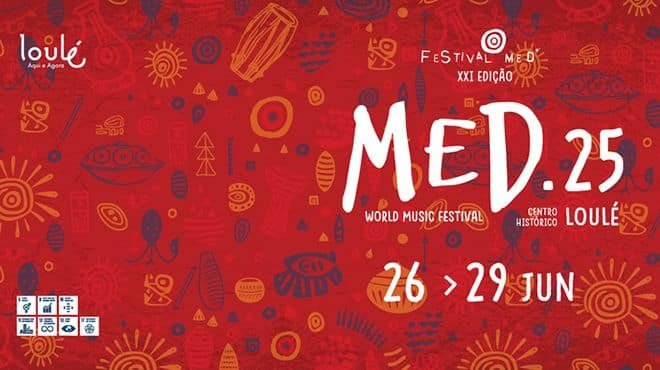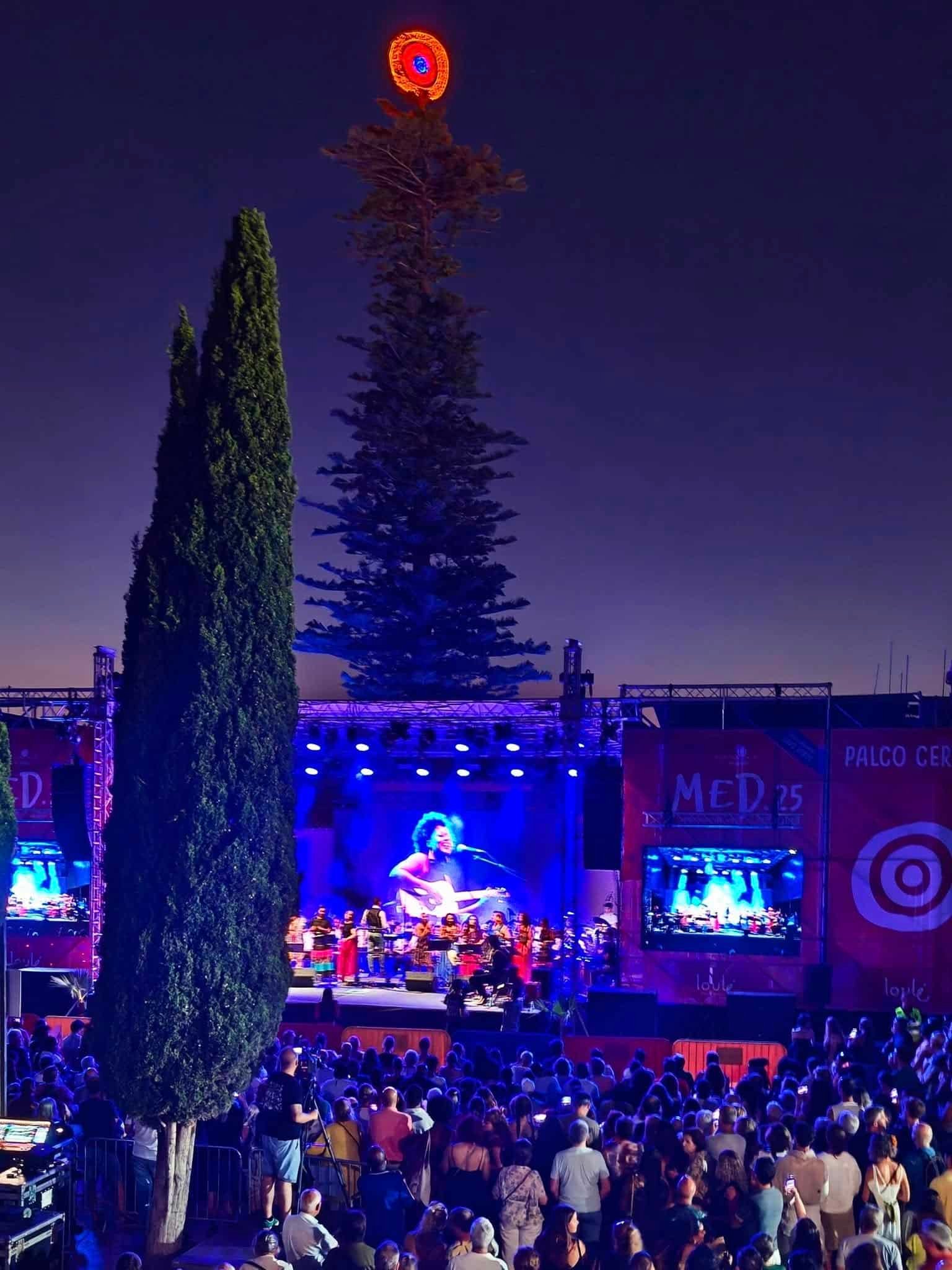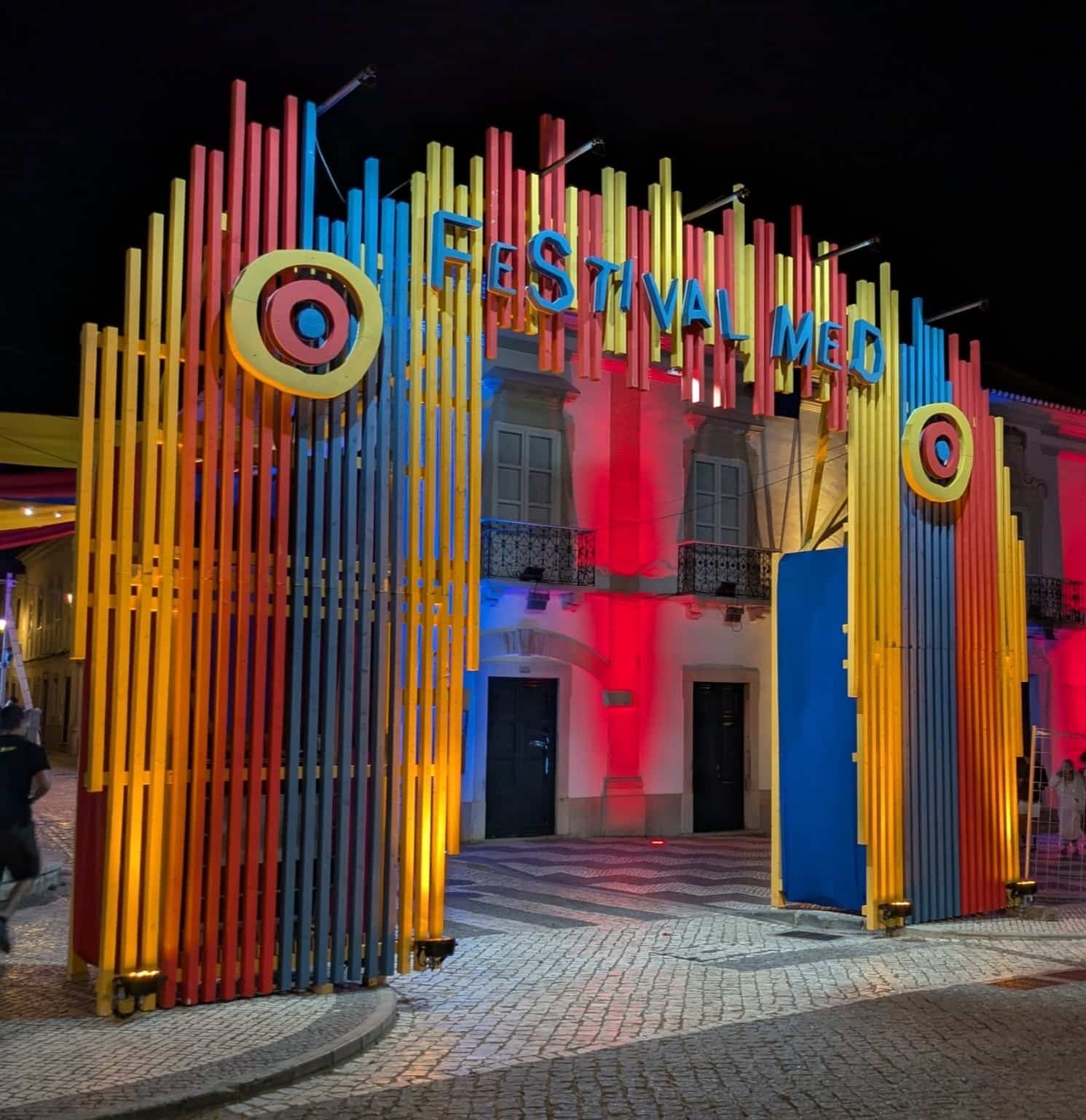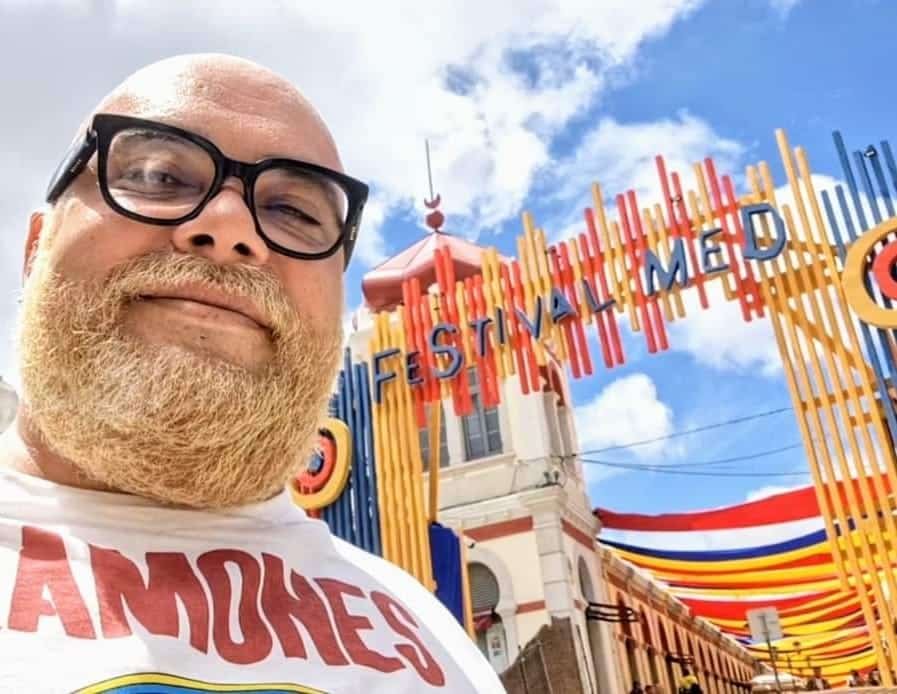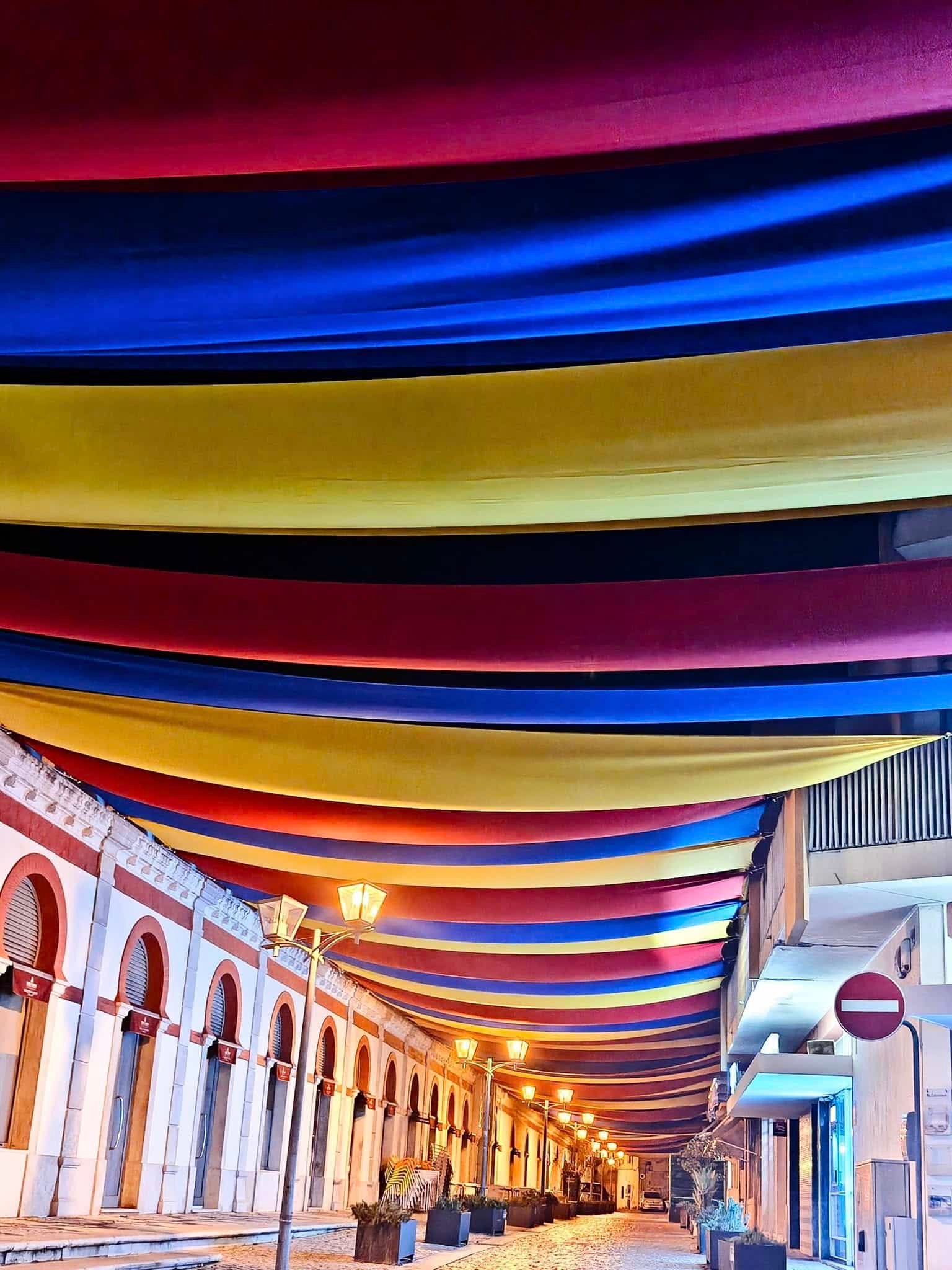Festival MED – Loulé, Portugal 2026
Background & History
The Festival MED, short for Festival do Mundo Egípcio e Mediterrâneo (Egyptian and Mediterranean World Festival), emerged in 2004 as a visionary initiative by the Municipality of Loulé to celebrate the rich tapestry of Mediterranean cultures, drawing inspiration from the region’s ancient Phoenician, Carthaginian, Roman, Visigothic, and Moorish heritage. Founded amid Loulé’s historic role as a trading hub—once known as Al-‘Ulya under Moorish rule since the 8th century—the event began modestly with a focus on world music and intercultural exchange, aiming to revitalize the Algarve’s inland economy while honoring shared Mediterranean traditions of tolerance and fusion. Its inaugural edition featured emerging artists and local crafts, attracting 10,000 visitors, but by 2007, it had expanded to include gastronomic showcases and street theater, earning recognition as one of Europe’s premier world music festivals.
Over two decades, Festival MED has evolved into a global beacon, now in its 22nd edition for 2026, drawing over 100,000 attendees annually and generating €5–7 million in economic impact through tourism and local commerce. This growth reflects Loulé’s UNESCO-aligned creative ethos, blending its 13th-century Christian Reconquista legacy (conquered by King Afonso III in 1249) with modern sustainability efforts, such as zero-waste initiatives and eco-ashtrays introduced in 2024. The festival’s cultural significance lies in its promotion of intercultural dialogue, spotlighting “guest countries” like Morocco (2024) and Cape Verde (2025), fostering unity amid diversity—echoing the town’s Moorish baths and 20th-century market architecture. Awarded the EFFE European Festivals Seal for 2024–2025 by the European Festivals Association, it underscores Portugal’s soft power, with past headliners like Buena Vista Social Club and Amadou & Mariam amplifying its role in preserving folk traditions while innovating through 80+ hours of music across genres from fado to funaná.
In 2026, expect an emphasis on emerging themes like climate-resilient Mediterranean heritage, building on 2025’s Cabo Verde focus with expanded workshops on sustainable crafts. This evolution not only sustains Loulé’s 70,000 residents by boosting artisan sales and hospitality but also educates on globalization’s cultural bridges, from Aztec influences via Portuguese trade to contemporary Afro-European fusions, making it a vital thread in the Algarve’s narrative of resilience and hospitality.
Enjoy Your Event Stress-Free with Euro Travelo
Planning a trip to attend a festival, concert, or business event in Europe can be overwhelming—tickets, travel, accommodation, and local logistics all take time and effort. Euro Travelo makes it simple by providing everything you need through one trusted company. You save time, avoid stress, and enjoy a seamless experience from start to finish.
Why Choose Euro Travelo:
- Secure and easy ticket booking for concerts, festivals, theaters, and business events.
- Complete travel planning including flights, trains, and local transportation.
- Accommodation arrangements near event venues, tailored to your needs.
- Convenient local transfers, from airport pickups to private shuttles.
- On-site concierge support to help you navigate venues and schedules.
- Custom itineraries and experience packages combining multiple events, tours, and activities.
- Secure payment process, making it safe and convenient to book all services online.
- Flexibility: even if you need only one service, we can assist individually.
Event Highlights
- Main activities or performances: Dive into 70+ concerts across 10 stages, featuring 2026 previews like Carmen Souza’s return (luso-Cape Verdean jazz-folk fusion) alongside anticipated acts from Africa, the Caribbean, and the Middle East; highlights include 500 hours of world music, from Cesária Évora Orchestra tributes to Vieux Farka Touré’s Malian blues, with interactive jam sessions at the Castelo stage and cinematic soundtracks at Igreja Matriz.
- Special traditions or features: Annual “guest country” showcases, with 2026 potentially honoring North African rhythms through tabanca dances and poetry slams; the “Open Day” finale offers free entry for community mingling, while eco-initiatives like upcycled art installations from cigarette butts promote sustainability—a tradition since 2024—culminating in multicultural auctions benefiting local charities.
- Unique attractions for visitors: Immersive street parades blending Moorish-inspired theater with global circus acts; the Geoparque Algarvensis exhibit ties fossil digs to cultural storytelling; family zones with kid-led workshops on Mediterranean myths, plus AR apps tracing Loulé’s 2,000-year history, turning the event into an educational odyssey amid lantern-lit alleys.
Date & Duration
For 2026, the projected dates are:
Thursday, June 25 – Sunday, June 28, 2026
Visiting this event? Don’t miss out on these amazing activities and local experiences while you’re here.
Venue / Location
Nestled in the Algarve’s Leiria District, Festival MED commandeers Loulé’s 2 km² historic core—a Moorish-era enclave with 13th-century walls, the Mercado Municipal de Loulé (1907 architectural gem), and the ruins of Castelo de Loulé (housing the Municipal Museum). Eleven stages span Praça da República (main entrance via market doors), Largo do Espírito Santo (street theater hub), and the Islamic Baths (ancient hammam for ambient performances). The pedestrian-only zona antiga, with its azulejo-tiled fountains and bougainvillea arches, creates an intimate, immersive vibe for 100,000+ visitors. Accessibility includes ramps at key plazas and shuttle loops from outer parking. This UNESCO Creative City contender amplifies the festival’s fusion ethos amid Roman aqueduct remnants and 20th-century Art Nouveau facades. Google Maps Address: Centro Histórico de Loulé, Praça da República, 8100-501 Loulé, Portugal
Ticket Information
- How tickets are sold: Advance online via https://festivalmed.cm-loule.pt (e-tickets with QR entry, bundles for multi-days); on-site at MED Ticket Office (Praça da República, facing Mercado Municipal, cash/card); group rates for families/schools via festivalmed@cm-loule.pt; lotteries for VIP stage access announced on social media.
- Whether admission is free or paid: Paid for full access (music, workshops); free Open Day finale (June 28, post-20:00) and pre-festival opener (June 25, capacity-limited); town streets open to all outside gates.
- Ticket pricing in USD only: Full pass (4 days, adults 18+): $32.40–$37.80 USD (€30–€35 advance). Single-day: $13.00–$16.20 USD (€12–€15). Youth (6–17): $10.80 USD (€10). Family (2 adults + 2 kids): $54.00–$64.80 USD (€50–€60). Opener free; Open Day free after 20:00. Minimum pricing: $0 USD (free events). Maximum pricing: $64.80 USD (family VIP with reserved seating and tastings).
- Any special seating or VIP options: VIP upgrades ($10.80–$16.20 USD add-on) for front-stage lounges, exclusive bars, and artist meet-and-greets; 50% off for seniors (65+), disabled (with ID), and Loulé residents; school groups $5.40 USD/child (€5) for cultural programs; eco-passes (sustainable transport proof) rebate $2.15 USD.
Contact Information
- Email: festivalmed@cm-loule.pt (program, bookings, groups); info@cm-loule.pt (general support); press@cm-loule.pt (media inquiries).
- Phone: +351 289 400 811 (festival hotline, English/Portuguese, 09:00–22:00 during event); +351 289 400 600 (Municipal Tourism Office).
- Website: https://festivalmed.cm-loule.pt (lineup, tickets, virtual tours); https://www.visitportugal.com/en/content/festival-med (tourism integration); https://www.cm-loule.pt (council updates).
- Social Media: @festivalmed (Instagram/Facebook for artist announcements, live streams); @VisitLoule (X for real-time tips); Linktree: linktr.ee/festivalmed (all links).
- Key Staff: Vítor Aleixo (Mayor, patron); Ana Aleixo (Cultural Director, programming); Sofia João (Sustainability Coordinator); João Guerreiro (Artist Liaison).
- Press/Volunteers: Press to press@cm-loule.pt (badges, interviews); 500+ volunteer roles (guiding, eco-monitoring) via festivalmed@cm-loule.pt (stipends €50/day, apply January 2026).
- Note: 24–48-hour responses; app-based chat; multilingual support (English, French, Spanish); accessibility via braille maps, interpreters.
Cultural Experience
Festival MED envelops attendees in Loulé’s 1,300-year Moorish legacy, transforming its labyrinthine streets—echoing Al-‘Ulya’s trading bazaars—into a living mosaic of Mediterranean syncretism, where Phoenician spices meet Cape Verdean mornas under starlit azulejos.
Traditions ignite with guest-country immersions: 2026’s potential North African focus revives tabanca communal dances, where drummers in embroidered djellabas lead processions from Castelo towers, chanting tales of Reconquista resilience. Fado evenings at Largo do Carmo blend saudade with Levantine oud improvisations, singers in black shawls evoking António Aleixo’s poetic worker ballads, fostering saudade-infused unity amid diverse crowds.
Costumes burst forth in street spectacles: performers in hybrid Moorish-Portuguese attire—flowing kaftans with Algarve filigree—stage interactive folktales, while artisans don Visigothic-inspired tunics for live weaving demos of pano di terra fabrics. Workshops resurrect ancient rituals, like funaná accordion lessons honoring Cape Verde’s resistance anthems, or pottery sessions drawing from Roman kilns unearthed in Loulé’s geopark.
Local customs deepen the bond through poetry slams at the Islamic Baths, reciting Gil Vicente farces infused with global metaphors, and communal cachupa feasts symbolizing shared harvests. Evenings culminate in rancho folclórico circles, skirts swirling to tambourines under lantern arches, blending Iberian vira with Moroccan gnawa rhythms. This tapestry not only preserves Loulé’s multicultural DNA—from Suevian invasions to 20th-century literary revivals—but champions inclusivity with audio-described parades and sign-language fado, inviting all to co-create Portugal’s bridge-building heritage.
Food & Drinks
- Must-try specialties: Cape Verdean cachupa stew (corn, beans, fish; $8.65–$10.80 USD), Morocco’s tagine with preserved lemon ($10.80 USD), and Greek souvlaki skewers ($6.50 USD); 2026 fusions like funaná-spiced Algarve sardines.
- Savory-sweet pairings: Portuguese cataplana clams with harissa yogurt ($13.00 USD); Levantine falafel in pita with Algarve honey drizzle ($5.40 USD); live demos of Moorish pastéis de nata with pistachio rosewater.
- Signature drinks: Grogue rum shots ($3.25 USD) from Cape Verde; Portuguese ginjinha in chocolate cups ($2.15 USD); non-alcoholic hibiscus teas or ouzo-inspired mocktails ($4.30 USD); wine pairings with Douro ports and Mediterranean reds.
- Baked goods and more: Italian cannoli filled with Algarve fig jam ($3.25 USD); gluten-free Moroccan msemen pancakes; vegan tabbouleh salads; kid-friendly mini empanadas with chorizo alternatives.
Getting There
- Nearest airports: Faro (FAO, 20 km/12 miles, 20-min drive/taxi €20–$21.60 USD); Lisbon (LIS, 280 km, 2.5-hour train); Seville (SVQ, Spain, 200 km, 2-hour drive).
- Public transport: CP trains from Faro (€3.25 USD, 30 min, hourly) to Loulé station (1 km walk); Rede Expressos buses from Faro (€4.30 USD, 25 min) or Lisbon (€27.00 USD, 3 hours); local shuttles during festival (€2.15 USD).
- By car: A22 from Faro (Exit 12, 20 min); 1,000+ parking spots at Estacionamento de Loulé (€1.08 USD/hour, 5-min walk); EV chargers available; Waze for festival traffic.
- Other options: Viator tours from Faro (€32.40 USD with entry); BlaBlaCar rides (€10–15 USD); e-bikes from station (€8.65 USD/day); coastal buses from Albufeira (€5.40 USD).
Accommodation Options
- Luxury stays: Dona Filipa Hotel ($162–$324 USD/night, Vilamoura, 15 km away), 5-star beachfront with spa, pools, and festival shuttles; Pine Cliffs Resort ($216–$432 USD, Albufeira), clifftop villas with Michelin dining.
- Mid-range hotels and guesthouses: Hotel Belavista da Luz ($108–$194 USD, Praia da Luz, 40 km), sea-view suites with terraces; Loulé Garden Hotel ($86–$162 USD, central), rooftop bar and cultural packages.
- Budget and family options: Água Hotels Vale da Lapa ($54–$108 USD, Lagos), family villas with kids’ clubs; Loulé Youth Hostel ($32–$65 USD), dorms with communal kitchens; glamping at Herdade da Malhada Velha ($43–$86 USD, 10 km).
- Additional tips: Airbnb historic homes ($65–$162 USD) in old town; book 6 months ahead via Booking.com for 15% festival deals; rural quintas with pools; pet-friendly options abound.
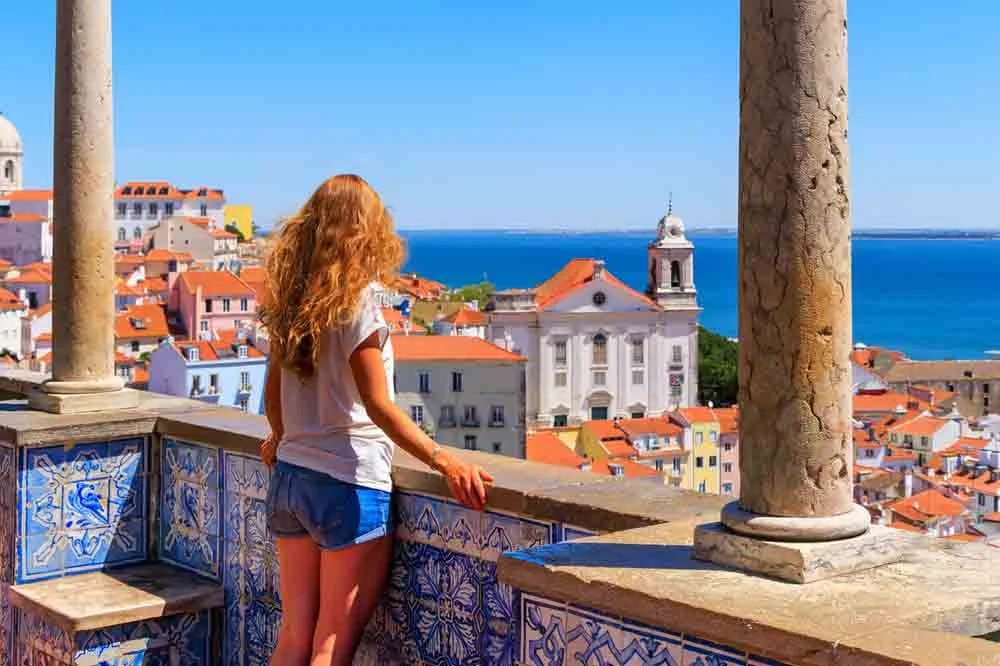
Attention!
We offer complete packages including Event Tickets, Accommodation, Transportation & more — so you don’t have to worry about anything.
Contact Us →Before you go, check these helpful travel products:
Maps
Contact
Video
FAQ's
Where and how can I buy tickets for Festival MED 2026, and what’s included?
Online at https://festivalmed.cm-loule.pt (QR e-tickets, advance savings) or at Praça da República booths (cash/card); prices $32.40–$64.80 USD. Passes cover 70+ concerts, 10 stages, workshops, and re-entry; free Open Day (June 28) for arts/food; VIP adds lounges ($10.80 USD extra).
What are the 2026 dates, and are tickets flexible for families/multi-days?
June 25–28 (4 days, 18:00–02:00); full passes ($32.40 USD) allow unlimited access/re-entry; single-day $13.00 USD; family bundles ($54.00 USD, 2 adults + 2 kids) include youth zones; under-6 free, with stroller loans.
Is Festival MED accessible for reduced mobility, pets, and groups; what discounts?
Ramps, shuttles, and tactile paths throughout; 50% off ($16.20 USD) for disabilities/seniors (email ID); leashed pets in outer areas (not stages); schools €5.40 USD/child programs via email.
How do I get to Loulé for the festival, and parking details?
Fly Faro (20-min taxi $21.60 USD) or train from Faro (€3.25 USD, 30 min); park at Estacionamento de Loulé (€1.08 USD/hour, 1,000 spots—arrive early for 100k crowds); EV rebates $2.15 USD; e-bikes €8.65 USD/day.
What if weather affects events, and dietary options?
Covered stages/tents ensure continuity; app updates for shifts, credits issued. 30+ stalls offer vegan tagines, gluten-free msemen ($5.40 USD), nut-free zones (flag allergies); kid menus with mini cachupa; eco-stalls for sustainable bites. 2.4sExpert

